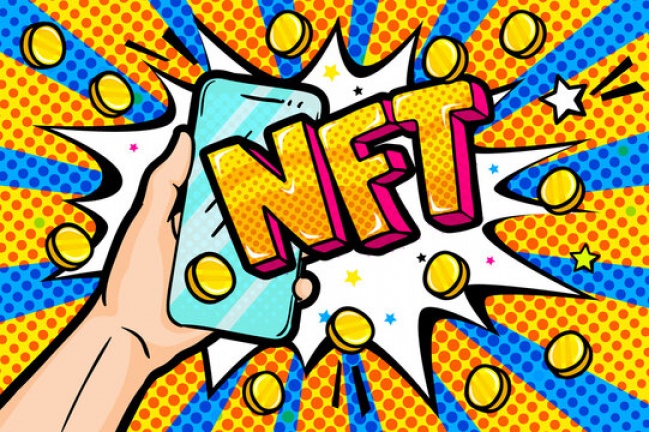The world of blockchain technology has given rise to a revolutionary concept known as Non-Fungible Tokens (NFTs). These unique digital assets have gained immense popularity for their ability to represent ownership and authenticity in the digital realm. As a result, NFT marketplaces have emerged as vibrant ecosystems where creators, collectors, and investors converge. If you're considering venturing into the realm of NFT marketplace development, this comprehensive guide will provide you with strategic insights to ensure your success.
Understanding NFTs
Before delving into the intricacies of NFT marketplace development, it's crucial to have a solid understanding of what NFTs are. Non-Fungible Tokens are unique digital assets that are indivisible and cannot be replicated. Each NFT is distinct and represents ownership of a specific digital or physical item, ranging from digital art and music to virtual real estate and in-game items.
Key Components of a Successful NFT Marketplace
Smart Contracts: The backbone of any NFT marketplace is its smart contracts. These self-executing contracts facilitate, verify, or enforce the negotiation or performance of a contract, enabling secure and transparent transactions. Ethereum's ERC-721 and ERC-1155 standards are widely used for NFTs, but other blockchains like Binance Smart Chain and Flow are gaining traction.
User-Friendly Interface: A seamless and user-friendly interface is paramount for a successful NFT marketplace. Ensure that the platform is intuitive, responsive, and accessible to both creators and collectors. Features such as easy onboarding, straightforward navigation, and a visually appealing design contribute to a positive user experience.
Wallet Integration: Implementing reliable wallet integration is essential for users to securely store and manage their NFTs. Support for popular wallets like MetaMask and Trust Wallet, along with compatibility with various blockchain networks, enhances the accessibility of your NFT marketplace.
Gas Fees Optimization: Gas fees on blockchain networks can be a significant concern for users. Implement strategies to optimize gas fees, such as layer 2 solutions or selecting blockchains with lower transaction costs. This ensures a cost-effective and efficient experience for users interacting with your NFT marketplace.
Community Building: Cultivate a strong and engaged community around your NFT marketplace. Utilize social media, forums, and other channels to connect with creators and collectors. Community feedback can be invaluable for improving your platform, and a vibrant community fosters a sense of belonging among users.
Legal Compliance: Navigate the legal landscape carefully to ensure compliance with regulations. Address intellectual property rights, licensing, and other legal considerations to build trust among users and protect the interests of both creators and collectors.
Royalty Mechanism: Implement a robust royalty mechanism to automatically distribute a percentage of sales to the original creators whenever their NFTs are resold. This not only incentivizes creators but also fosters a sustainable ecosystem where artists are fairly compensated for the ongoing value of their work.
Security Measures: Prioritize security to safeguard the integrity of your NFT marketplace. Implement best practices, including encryption, multi-signature wallets, and regular security audits, to protect user assets and maintain trust in your platform.
Scalability: Plan for scalability from the outset. As your NFT marketplace grows, the infrastructure should be able to handle increased traffic and transactions. Scalability ensures a smooth user experience and prevents performance issues during peak times.
Marketing and Promotion: Develop a comprehensive marketing strategy to promote your NFT marketplace. Leverage social media, influencers, and partnerships to create awareness and attract both creators and collectors. Effective marketing is essential for establishing your platform in a competitive market.
Conclusion
Embarking on the journey of NFT marketplace development requires a combination of technical expertise, strategic planning, and a deep understanding of the evolving blockchain landscape. By focusing on key components such as smart contracts, user interface, community building, legal compliance, and security measures, you can position your NFT marketplace for success. Keep pace with industry trends, listen to user feedback, and adapt your strategy to create a dynamic and thriving ecosystem that empowers creators and delights collectors. As the NFT space continues to evolve, those who approach marketplace development with foresight and innovation will undoubtedly reap the rewards of this transformative digital era.


No comments yet